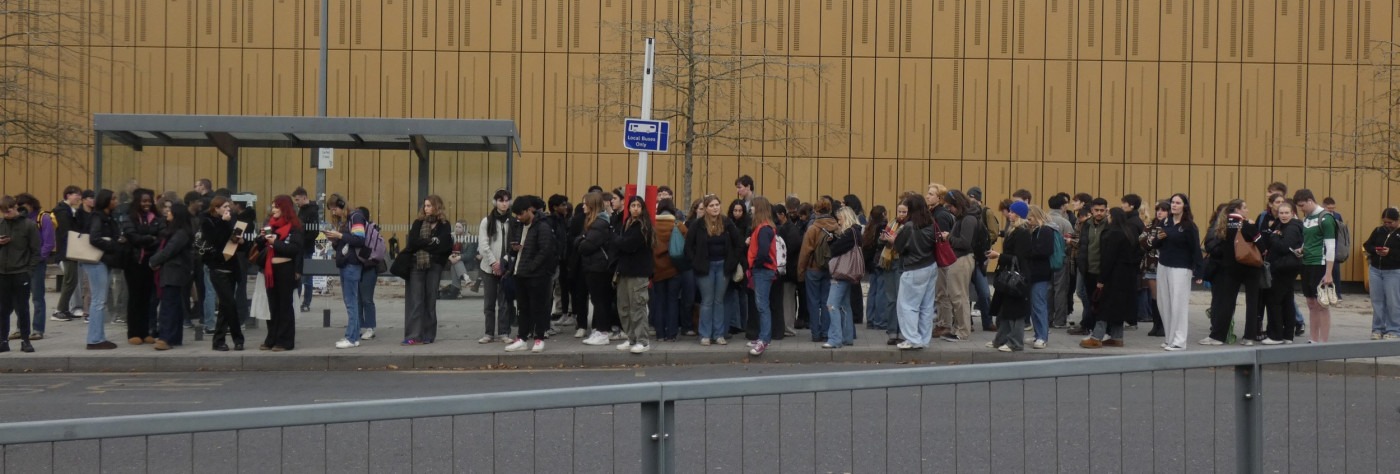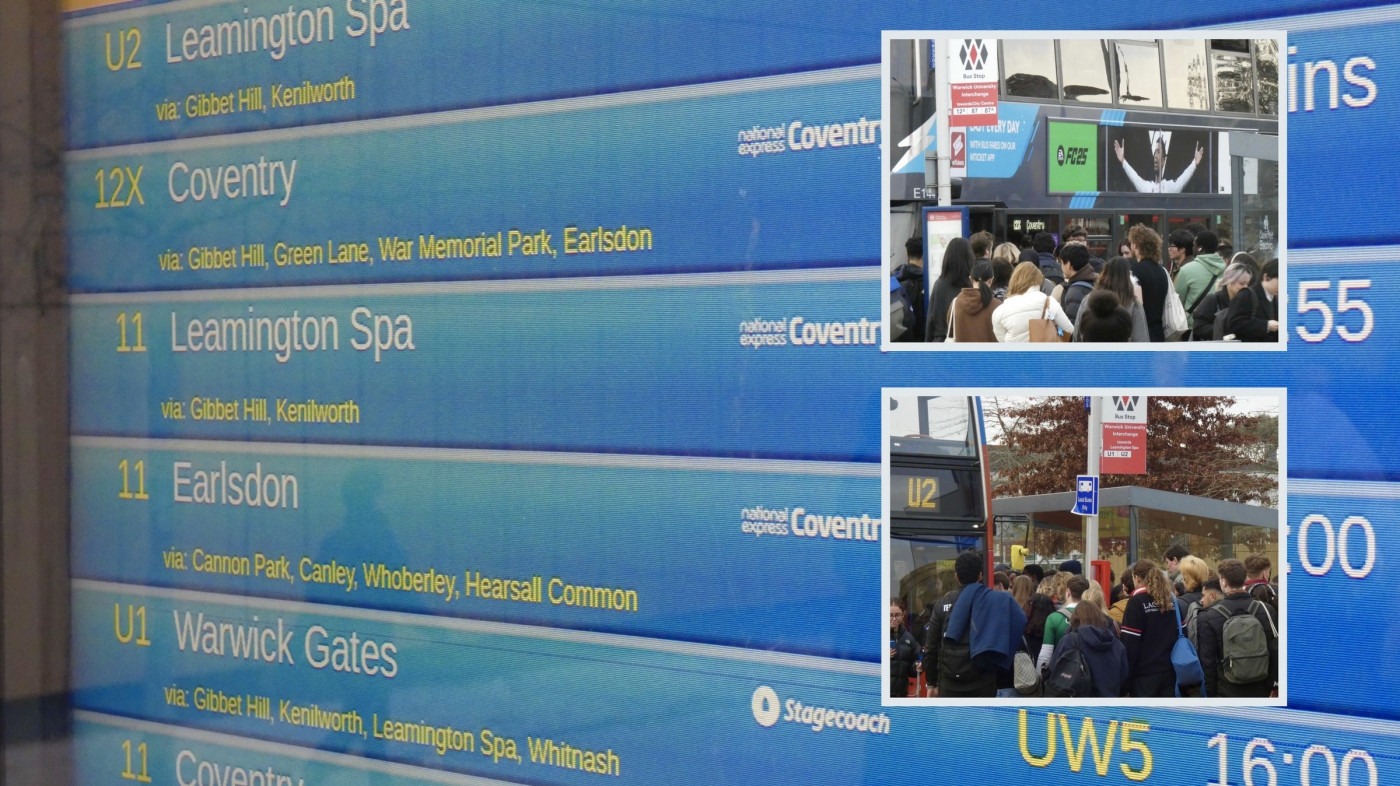Three-quarters of Leamington students missing lectures due to bus delays
Over half of Warwick students report bus delays and cancellations have a negative impact on their attendance, an investigation by The Boar has revealed, with the number rising to over 3/4 among Leamington residents.
Students at Warwick typically rely on Stagecoach’s U1 and U2 services, between the University and Leamington, to commute to campus, as well as the 11 and 12X from Coventry, run by National Express. For many students, using these buses is the only feasible option for them to be able to attend classes. Indeed, even the University’s own environmental targets promote the use of “sustainable modes of transport”, including public transport, amongst staff and students.
I have been late to so many of my seminars because the U2 just never runs anymore in the morning
Ellie, third-year history student
Overall, 2/3rds of respondents expressed disapproval at the quality and frequency of local bus services, with just 15% somewhat satisfied. Perhaps unsurprisingly, the most pertinent theme that emerged from student complaints was the impact of delays on attendance. Describing services as “unreliable”, “exceptionally busy”, and frequently cancelled, Warwick students face almost daily issues in travelling to campus. Ellie, a third-year history student, lamented: “I have been late to so many of my seminars because the U2 just never runs anymore in the morning.”
For some, problems with public transport have become so egregious that they avoid travelling to campus at all. Arthur, a second-year student, admitted they were “much more likely to skip lectures” due to bus-related issues, whilst another PAIS student shared similar feelings, confessing they “go to campus less to not have to deal with the bus”. Others also highlight missing compulsory ‘monitoring points’, classes used to measure attendance by many departments.
Warwick Students’ Union’s Better Buses survey reflected similar frustrations with local services. In particular, students complained of having to shell out hundreds of pounds for replacement bus passes after losing the original copies. It echoed student exasperation with the impracticality of commuting; one respondent remarked: “The buses are too crammed, they need to send buses more frequently.”
Of those surveyed, nearly 2/3rds of students expressed that bus delays and cancellations negatively impacted their work ethic at university. This dissatisfaction was similarly pronounced for Leamington students, with 90% seeing their productivity suffer. “It’s just demoralising”, said one third-year student.
It’s just demoralising
Third-year student
Not only can these delays dampen students’ enthusiasm for their degree, but likewise are detrimental to scheduling. Coordinating group study and executive meetings has become increasingly challenging, as well as long waits stranded at bus stops due to cancellations leaving many fatigued by the stress of commuting. One third-year student argued that delays “waste time [they] could be working”, whilst another asserted that they struggled to complete all their daily tasks due to uncertainty with the bus service.
Single bus journey fares are currently capped at £2, but are set to rise to £3 in the new year. This increase has proved controversial, nationally and at Warwick: over 3/4s of Leamington students indicated they would be less likely to take the bus when it comes into effect. Almost half, 44%, of respondents have not purchased a bus pass this year, suggesting it is set to dent the budgets of many students at Warwick. For Janvi, a third-year economics student, the prospect of a £6 round trip was especially discouraging: “If I have only one lecture which I can catch up on at home, I probably won’t go in.” Others living in Canley and Coventry also voiced an increased hesitancy towards travelling to Leamington for social activities.
I’m poor, so I guess I will eat less
Second-year student, on the increasing bus fare price cap
With transport costs set to rise, students are due to face even tougher budgeting decisions. One second-year’s response to the increased fare cap read: “I’m poor, so I guess I will eat less”; a blunt statement befitting the additional financial pressures of paying for travel in already testing times.
Several students called for a free or subsidised university-run bus service. One economics student, Clea, was surprised not to find a free service when she arrived at university: “I am from the US where the bus is free for students, so I assumed a city full of students would have a similar policy.” Closer to home, some UK universities offer free bus services for students. For instance, University of Manchester staff and students can access the 147 route, connecting their Oxford Road campus to student neighbourhoods like Fallowfield, whilst a similar service is available in Southampton.

Students queue for the bus to Leamington at University Interchange | Image: Martin Day / The Boar
Bus services remain the Warwick University student’s favourite grievance, but testimony of disruptive delays and chronic cancellations paint an alarming picture. With tuition fees set to rise, and students looking to make the most of their university education, weary commuters urged the University to change the record on student travel; perhaps best illustrated by the determined call of one second-year biochemistry student: “Step up, Warwick.”
Stagecoach, Warwick SU, and the University of Warwick were approached for comment.

Comments